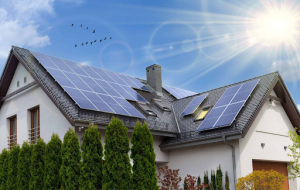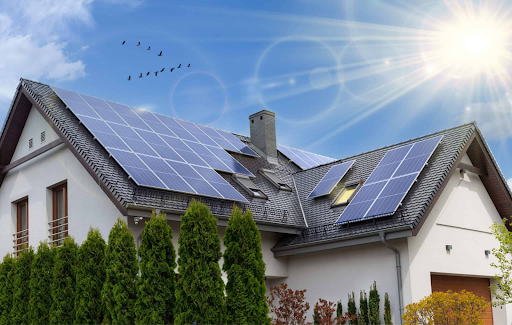In today’s world, more homeowners are looking for ways to cut costs, reduce their environmental footprint, and make their homes more energy-efficient. Among the many options available, solar energy has quickly become one of the most reliable and rewarding solutions. Residential solar installation not only helps you save money on energy bills but also adds long-term value to your property. Choosing solar power is no longer just about being environmentally conscious—it’s also about making a smart financial decision that pays off in multiple ways.
Understanding Residential Solar Installation
Residential solar installation refers to setting up solar panels on a home to generate electricity from sunlight. These systems typically include solar panels, an inverter to convert solar energy into usable electricity, and sometimes a battery storage unit. The installation process usually begins with an assessment of the home’s energy needs, roof condition, and sunlight exposure. Once installed, the system starts producing clean, renewable energy, reducing your dependence on the local power grid.
Unlike traditional electricity sources, solar energy doesn’t rely on fossil fuels, which means it not only reduces your carbon footprint but also shields you from rising energy costs. Over time, this switch to solar power creates both immediate savings and long-term financial stability for homeowners.
The Financial Benefits of Going Solar
One of the biggest reasons homeowners choose residential solar installation is the potential for cost savings. Utility bills can be unpredictable and often increase due to fuel prices and seasonal demand. With solar panels, however, you can generate your own electricity and reduce monthly expenses significantly.
Many homeowners report a noticeable drop in their electricity bills right after installation. Depending on the size of the system and the amount of sunlight your area receives, you could even eliminate most of your utility costs. On top of that, many governments offer incentives, rebates, and tax credits for installing solar systems, which makes the initial investment more affordable.
Over time, the system often pays for itself through savings, and after that point, the electricity it produces is essentially free. This makes solar power not just a sustainable choice, but also a financially sound investment.
Boosting Property Value with Solar Panels
Homes equipped with solar energy systems tend to attract more buyers in the real estate market. As energy costs continue to rise, potential homeowners increasingly look for properties with built-in energy efficiency features. Residential solar installation adds to the appeal of your home by offering lower energy bills and a modern, eco-friendly lifestyle.
Research has shown that homes with solar panels often sell faster and at higher prices compared to those without them. This added property value makes solar a strong long-term investment, whether you plan to stay in your home for decades or sell it in the near future.
Environmental Impact and Sustainability
While the financial benefits are attractive, the environmental advantages of residential solar installation are equally important. Traditional energy sources, such as coal and natural gas, release harmful greenhouse gases into the atmosphere. These emissions contribute to climate change, air pollution, and health risks.
By switching to solar energy, you significantly reduce your carbon footprint. Solar power is clean, renewable, and abundant. A single home powered by solar can prevent tons of carbon dioxide from being released each year. This small change at an individual level adds up to a big impact when adopted by communities and neighborhoods. In this way, residential solar installation not only benefits your home but also helps create a healthier and more sustainable planet.
Energy Independence and Reliability
Another key reason to consider residential solar installation is energy independence. When you rely entirely on the grid, you are subject to utility rate increases, power outages, and external supply issues. With solar panels, you gain greater control over your home’s energy source.
For homeowners who add battery storage to their solar system, the benefits are even greater. A solar battery stores excess energy produced during the day, which can be used at night or during outages. This makes your home more resilient and less vulnerable to external disruptions. In areas prone to blackouts or natural disasters, this level of reliability can provide peace of mind and security for your family.
Long-Term Return on Investment
Residential solar installation should be viewed as a long-term investment. Although the upfront cost may seem high, the lifetime savings, property value increase, and energy independence all combine to deliver a strong return. Most solar panels last 25 years or more, and during this time, they require very little maintenance. This makes them a low-risk investment with consistent benefits over decades.
When you compare solar energy with other home improvements, such as remodeling a kitchen or adding landscaping, solar panels stand out because they directly generate financial returns in addition to improving comfort and lifestyle.
Conclusion
Residential solar installation is much more than just a trend—it is a smart, forward-thinking investment for homeowners. It saves money on energy bills, increases property value, reduces environmental impact, and offers greater independence from the power grid. With government incentives making installation more affordable than ever, now is the perfect time to consider solar for your home. By making this choice, you are not only investing in your financial future but also contributing to a cleaner, greener world.










